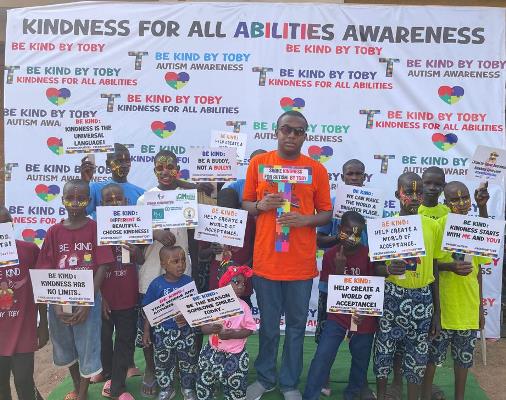567 total views today
By Okon Okon, News Agency of Nigeria (NAN)
In recent years, smartphones with high storage capacity, advanced features and unrestricted internet access have become widely accessible to Nigerian teenagers.
While these devices offer numerous benefits, they have also contributed to a decline in moral values among young people.
This moral decadence is evident in various aspects of teenage behaviour, including exposure to inappropriate content, declining academic performance, reduced parental control and engagement in cybercrime.
Stakeholders, religious groups, traditional leaders, parents, among others–have expressed worry over the trend, while emphasising moral teachings to guide teenagers toward ethical behaviour.
Mrs Agbonma Asemota, a mother of three children, said it was not encouraging to allow teenagers to have access to sophisticated phones owning to explicit contents such as pornographic pictures and violent media.
Asemota added that with unrestricted internet access, many teenagers in Nigeria were exposed to harmful materials that influenced their perception of relationships, sex and violence.
According to her, such exposure can lead to early sexual activity, promiscuity and the erosion of traditional cultural values.
“High-capacity or smartphones enable teenagers to download and store large amounts of explicit content, including pornography and violent media.
“Well, high-capacity phone, I really can’t say if or if it should be given to a teenager or not, but there are reasons if it should also be given or not.
“First and foremost, a high-capacity phone contains information and there is age-based information that either a child, teenager or an adult would need at a particular time.
“So, these are things we put into consideration when giving out information.
“So, when it comes to giving out high-capacity phones with so much information on it, we should have it at the back of our minds, what do these children need at a particular time in their lives?
“We cannot allow children to start consuming adult content.
“It is just like in food; you do not start giving a child heavy meals when he or she is a baby; so, you give the child appropriate food; so, also should information.”
According to her, giving a child access to information that is either higher or not too useful for that child at that point can have adverse effects on his or her mental health.
She narrated a sad experience she had with a boy when she served as a young corps member in a secondary school, saying that she was not satisfied with what she saw.
“I was teaching secondary school, SS1 to be precise; there was a young boy and I think he was between the ages of 15 to 16.
“So, he gave me his phone to go through videos on his phone and what I found on his phone were high content and they were sex related movies.
“That was the information he consumed on a daily basis and it could affect his physical actions,” she said.
Hajia Zainab Garba, another contributor, who cited both negative and positive effects, said while mobile phones, particularly Android devices, offered numerous benefits, they also exposed young users to harmful content.
Garba noted that unrestricted access to the internet could lead teenagers to inappropriate websites, including those promoting cyber frauds, popularly known as “Yahoo Yahoo.”
She said there was need for caution when giving teenagers high-capacity smartphones, stressing that they should first be guided on distinguishing between right and wrong before being granted unrestricted access to such technology.
Speaking on education decline and negative influences, Very Rev. Anza Habila, Cleric in charge of All Saints Methodist Church Mararaba, said excessive smartphone used by teenagers had made them to be over dependent on technology.
Habila added that the habits had reduced most students’ ability to think critically and be creative.
“As both a parent and a religious leader, I strongly believe that excessive smartphones use by teenagers have more negative effects than positive ones, especially in education.
“One major issue is distraction; many students struggle to concentrate in school because their attention is constantly drawn to their phones.
“Instead of focusing on lessons, they often engage in activities that are not educationally beneficial.
“While some students argue that smartphones help with assignments, presentations and communication, the disadvantages far outweigh the benefits.”
He said that instead of conducting proper research, they relied on quick online searches, thereby weakening their problem-solving skills.
“In my opinion, parents should limit smartphone use among teenagers, especially in secondary school; at that stage, they may not yet have the maturity to manage their time and responsibilities effectively.
“Even at the university level, some students are still too young to handle the distractions and potential dangers that come with unrestricted smartphone use.”
Beyond academics, the cleric said there were also moral concerns as it had exposed teenagers to negative influences, such as internet fraud (commonly known as Yahoo Yahoo).
“There have been cases where young teenagers, due to their access to smartphones, have engaged in fraudulent activities or learned unethical ways to exploit others financially.
“For instance, I know of a case where a 13-year-old boy secretly connected an application to his father’s bank account, unknowingly stealing money over time.
“This kind of behaviour often begins with peer influence and unrestricted access to technology.”
Habila, however, said while smartphones could be useful tools, their misuse could also negatively impact students academically, morally and socially.
“Parents should carefully consider when and how to introduce their children to smartphones, ensuring they develop discipline and responsibility before gaining unrestricted access.
“Many teenagers become addicted to social media, online gaming and entertainment apps, which significantly distract them from their studies.’’
The cleric noted that instead of students focusing on academic work, they would rather spend hours on platforms like TikTok, Instagram and YouTube, consuming and creating content that might not add value to their intellectual growth.
“This addiction often leads to poor academic performance and reduced attention in school,” he said.
Contributing, Mr Patrick Odey, a community leader at Ado village in Nasarawa State, cautioned against early exposure of teenagers to internet-enabled devices, adding that they were at risk.
Odey said concerns over the negative impact of smartphones on teenagers were growing, with experts and parents cautioning against early exposure to internet-enabled devices.
He cited Brigham University in Masaka that banned usage of Android phones within its promises to curb distractions and protect students from harmful online content.
“Brigham University is one of the institutions enforcing strict measures against smartphone use among students; if you are caught with an Android phone, you are expelled.
“Only laptops are allowed for academic purposes, ensuring that students focus on research and assignments without distractions.”
According to him, the unrestricted use of smartphones among adolescents has led to declining academic performance and exposure to inappropriate material.
“It does not give children the right way to learn; they concentrate more on their phones, browsing instead of studying.
“A child that is underage will access content far beyond his maturity level, which negatively impacts his/her development,” he said.
While smartphones are essential tools for communication, education and personal development, their misuse by Nigerian teenagers have contributed to moral decadence in society.
Observers say to curb this, parents, teachers and the government must implement stricter measures, such as digital literacy education, parental controls and awareness campaigns on responsible phone usage.
They say religious and community leaders should emphasise moral teachings to guide teenagers towards ethical behaviour. (NANFeatures)
***If used, please credit the writer and News Agency of Nigeria.









 Nine communities; Abo Mkpang, Abo Obisu, Abo Ogbagante, Kayang I, Kayang II, Wula Ekumpou, Wula Mgba Esour, Bukalum, and Bamba, are at the heart of this conflict.
Nine communities; Abo Mkpang, Abo Obisu, Abo Ogbagante, Kayang I, Kayang II, Wula Ekumpou, Wula Mgba Esour, Bukalum, and Bamba, are at the heart of this conflict. Given that the region’s elephant population is estimated at just 74, according to the latest African Elephant Status Report, this is a concerning trend.
Given that the region’s elephant population is estimated at just 74, according to the latest African Elephant Status Report, this is a concerning trend.




